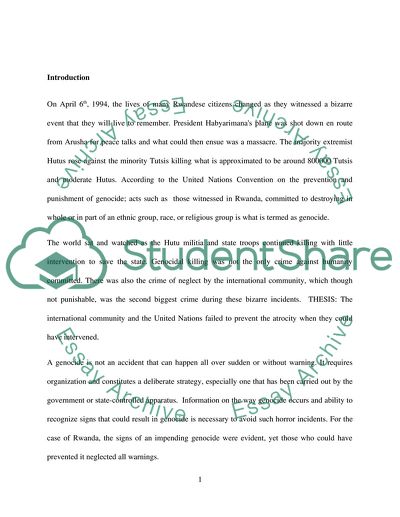Cite this document
(“Failure of the UN in Preventing Rwandas Genocide Dissertation”, n.d.)
Failure of the UN in Preventing Rwandas Genocide Dissertation. Retrieved from https://studentshare.org/history/1867329-various-questions-on-international-studies-to-be-answered-to-form-an-essay
Failure of the UN in Preventing Rwandas Genocide Dissertation. Retrieved from https://studentshare.org/history/1867329-various-questions-on-international-studies-to-be-answered-to-form-an-essay
(Failure of the UN in Preventing Rwandas Genocide Dissertation)
Failure of the UN in Preventing Rwandas Genocide Dissertation. https://studentshare.org/history/1867329-various-questions-on-international-studies-to-be-answered-to-form-an-essay.
Failure of the UN in Preventing Rwandas Genocide Dissertation. https://studentshare.org/history/1867329-various-questions-on-international-studies-to-be-answered-to-form-an-essay.
“Failure of the UN in Preventing Rwandas Genocide Dissertation”, n.d. https://studentshare.org/history/1867329-various-questions-on-international-studies-to-be-answered-to-form-an-essay.


